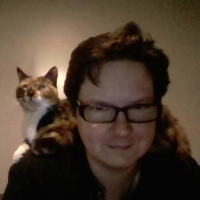The Eurovision Song Contest community may love Festivali i Kenges as our unofficial Christmas party, where we all digitally tune in to Albanian broadcaster RTSH on its livestream. But many of us may not know its complicated and at times difficult history; a history that tracks the nation’s former status as a totalitarian communist regime, as well as its transition to capitalism and democracy.
I recently sat down with Nicholas Tochka, author of ‘Audible States: Socialist Politics and Popular Music in Albania‘, to chat about this history for the ‘Eurovision Wars‘ podcast.
From Communism…
The Festival began in 1962, under the dictatorship of Enver Hoxha – a hardline Stalinist regime that had recently broken with the Soviet Union over the reforms of Nikita Kruschev. From the outset it was designed as what Tochka has called a “planned music economy” in which composers and singers became instruments of labour, bringing ideologically correct “light music” to the Albanian people. Songs might celebrate the opening of a dam, or present a love song where the boy and girl meet in a factory like good workers.
The first Festival i Kenges was won by the legendary singer Vaçe Zela, who would go on to win the Contest no less than eleven times, and is now remembered as “the queen of Albanian light music.” She was celebrated not just for the beauty of her voice, and the energy of her performances, but also for interpreting the songs of the composers (who in the early years were the real stars of the show rather than singers) in a “correct” way.
Failing to be “correct” could result in harsh consequences. The eleventh festival in 1972 led to a crackdown where a number of singers were either imprisoned or exiled to rural areas. According to Tochka nobody seems entirely sure what incurred the wrath of the regime. However, his suspicion is that a brief period of liberalisation had led to a conservative reaction to stamp down on any change. Predictably, those who endured the harshest punishments were those viewed as lower on the pecking order – young, less-established singers rather than elite composers or respected singers.
But change did come, both to Albania and the festival.
…To Our Song Contest
In the 1980s there was a growing influence from Italian radio, despite the best efforts of the regime to jam the signals. This led to the usual symphonic arrangements being challenged by guitar bands such as Ritfolk, in which “the hair got a little shaggier” as Tochka puts it. In 1985 Hoxha died, leading to Albania’s transition into capitalism and democracy in 1991. This transition did not run smoothly. Market reforms led to an influx of pyramid schemes that crashed the economy and brought Albania to the brink of civil war.
New artists emerged out of the chaotic transition. Ardit Gjebrea who won the festival in 1991 with Jon and in 1995 with Eja, used his ‘Projekt Jon’ to imagine a vision of modern pop with a distinct Albanian flavour. Gjebrea would go on to compose Juliana Pasha’s 2010 Eurovision song, as well as developing the rival Kënga Magjike contest. The 90s also saw a rising influence of Kosovar acts who, having grown up in the former Yugoslavia, had a greater exposure to genres such as hip hop and techno than their counterparts in Albania.
From 2004 Festival i Kenges took on its current role as a Eurovision selection show but continues many of the influences from its early years. The frequent presence of soaring vocals over complex orchestral arrangements trace a lineage that go right back to Vaçe Zela. The festival continues to explore what it means to be Albanian – both to domestic audiences and, in this Eurovision era, to the wider world also.
You can hear my full interview with Nicholas Tochka at the Eurovision Wars podcast; Season 2 is exclusive on Spotify, and you can listen to Season 1 here on ESC Insight.









